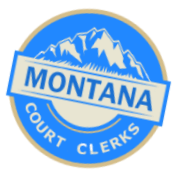Try This Sample Montana FOIA Request
The Montana Freedom of Information Act (FOIA) is an important instrument for promoting transparency and accountability within government operations. This guide outlines the key aspects of FOIA, including its significance, its applicable entities, and the procedures for submitting information requests.
Additionally, it addresses the exceptions to disclosure, options for enforcing compliance, and recent updates to the law. Whether one is a concerned citizen or a journalist, grasping these elements is essential for effectively accessing critical public information.
Montana FOIA Request Key Takeaways:
Understand the importance of the Montana Freedom of Information Act and how it affects access to government information.
Know which government agencies and entities are covered by FOIA in Montana. Follow best practices for requesting information and be aware of exceptions and recent updates to FOIA laws in Montana.

Understanding the Montana Freedom of Information Act (FOIA)
The Montana Freedom of Information Act (FOIA) serves as an essential legislative framework aimed at promoting transparency and accountability within the state. It grants citizens the right to access public records and information held by government entities.
Rooted in the Montana Constitution, FOIA give the power tos individuals to request and examine records, ensuring that public agencies function openly and uphold public trust. This act embodies a commitment to open government and protects citizens’ constitutional rights to be informed about their government, fostering active public participation in governmental processes.
What is FOIA and Why is it Important?
The Freedom of Information Act (FOIA) is an important tool that promotes transparency in government operations by allowing citizens to request access to public records. These records can include documents, emails, and reports related to various governmental functions.
This framework not only give the power tos individuals to hold their government accountable but also nurtures a culture of openness that is essential to a democratic society. By facilitating the flow of information, FOIA plays a critical role in building public trust and fostering a sense of community, all while ensuring individual privacy is respected.
It’s important to acknowledge the delicate balance between transparency and privacy, as the act does include certain exemptions to protect sensitive information. For example, records that could threaten national security or disclose personal data about individuals are generally withheld. This approach ensures that public safety is prioritized while still promoting an informed citizenry.
Who is Subject to FOIA in Montana?
In Montana, the Freedom of Information Act (FOIA) encompasses a broad range of entities, including public agencies and legislative bodies. These organizations are responsible for managing public funds and overseeing governmental functions, which helps to ensure accountability and transparency in their operations.
Government Agencies and Entities Covered by FOIA
Montana’s Freedom of Information Act (FOIA) includes a range of public agencies, such as state departments, local governments, and other public bodies or Montana clerks that manage records related to governmental meetings and decisions.
This also extends to entities like the Montana Department of Transportation and local law enforcement agencies, which typically keep documentation that includes reports, meeting minutes, and policy logs.
For citizens interested in accessing these records, the process begins with submitting a written application to the appropriate agency. This request should clearly specify the documents they are looking for, and agencies are usually required to respond within a designated time frame.
By participating in this process, community members can gain valuable insights into how their government operates, fostering both transparency and accountability without the need to hire a Montana lawyer.
Procedures for Requesting Information under FOIA

Requesting information under the Montana Freedom of Information Act (FOIA) follows a structured process. Individuals need to submit a formal request to the designated records custodians within public agencies.
This approach ensures compliance with legal obligations and makes it easier for the public to inspect government-held information.
Submitting a FOIA Request
To submit a FOIA request in Montana, individuals should clearly outline the information they seek and direct their requests to the relevant agency’s records custodian. It’s important to consider the state’s records retention requirements and any applicable fee provisions.
Requesters should use precise language that specifies the documents they are looking for, such as including relevant dates or subject matters, to avoid any ambiguity. This level of precision greatly enhances the chances of obtaining the necessary records.
Drafting the request in a clear and concise manner also assists agency personnel in processing it efficiently. Following up after submission is equally important; doing so can help ensure that the request is progressing as expected and clarify any questions the agency may have.
It is also wise to be aware of potential costs associated with retrieving records, including copying fees. Understanding these costs upfront can help avoid any unexpected surprises.
Response Time and Fees
In Montana, agencies are legally obligated to respond to FOIA requests within a specified timeframe that varies based on the nature of the request. This process also involves outlining any fees associated with providing public access to records.
For standard requests, agencies are expected to respond within 10 business days, which gives citizens a reasonable expectation for timely access to information. However, expedited requests can be prioritized if the requester demonstrates a compelling need, leading to a quicker turnaround.
It’s essential to maintain transparency regarding the fee structure, as costs may discourage individuals from seeking information. Each agency should clearly communicate any potential fees, including both search and copying charges, to ensure that financial barriers do not obstruct the public’s right to transparency and accountability.
Exceptions to FOIA in Montana
The Montana Freedom of Information Act (FOIA) is designed to promote transparency in government. However, it also outlines specific disclosure exemptions that safeguard certain information from being released.
This is particularly important in situations where individual privacy or public safety could be at risk.
Types of Information Exempt from Disclosure
Certain types of information are exempt from disclosure under Montana’s FOIA, including judicial deliberations and records that could infringe on individual privacy or do not serve the public interest.
For example, discussions among judges during the decision-making process remain confidential to uphold the integrity of the judicial system and ensure the court’s impartiality. Additionally, personal information, such as medical records or financial details, is protected to maintain an individual’s right to privacy.
These exemptions are determined through a careful balancing act, where the need for transparency is weighed against the necessity of confidentiality in specific circumstances.
As a result, when individuals submit FOIA requests, they may encounter limitations based on these criteria, which could affect their ability to access certain documents that might otherwise contribute to public understanding.
Enforcing FOIA Rights in Montana

Citizens in Montana hold the right to enforce their Freedom of Information Act (FOIA) rights through various legal avenues. This includes the option to file lawsuits against public agencies that do not comply with the statutory obligations set forth in the Act.
By taking these steps, they reinforce public trust and accountability in government operations.
Filing a Lawsuit for Non-Compliance
In Montana, if a public agency fails to respond to a FOIA request or unjustly denies access to public records, citizens have the right to file a lawsuit to challenge this non-compliance and compel the agency to meet its legal obligations. This legal route is essential for promoting transparency and accountability in government operations.
To begin the process, individuals should gather all relevant documentation, including the original FOIA request and any correspondence with the agency. It’s important to compile evidence that demonstrates the agency’s non-compliance, which may include timestamps of requests and records of any denied access to specific documents.
Filing a lawsuit generally involves submitting a complaint to the appropriate court, detailing the agency’s failures and backing up the claim with the gathered documentation. Possible outcomes can vary, ranging from a court order that requires the release of the requested records to financial penalties imposed on the agency for its non-compliance. Understanding these steps is crucial for individuals seeking justice through legal channels.
Tips for Making a Successful FOIA Request in Montana
To enhance the likelihood of a successful FOIA request in Montana, it is essential for individuals to be clear and precise in their requests. This involves defining the specific records they are seeking and understanding the agency’s obligations for compliance.
Such clarity will aid in facilitating prompt public engagement.
Best Practices for Requesting Information
When making a FOIA request in Montana, employing best practices can greatly improve the chances of acquiring the desired public information quickly and effectively. This includes directing requests to the appropriate records custodian.
It is essential for requesters to conduct thorough research on the agency’s records to gain a better understanding of what information is available and to accurately specify the details of their requests. Being clear about their needs not only facilitates the processing of the request but also encourages agency officials to respond more promptly. Maintaining a respectful tone during communications can help create a collaborative environment, which may prompt officials to assist more willingly with the request.
If no response is received, following up politely demonstrates persistence while reflecting professionalism. This approach ultimately contributes to a smoother and more productive interaction.
Recent Changes and Updates to Montana FOIA
Recent legislative amendments to Montana’s Freedom of Information Act (FOIA) demonstrate the state’s dedication to improving government transparency and enhancing citizens’ access to public records. This effort aims to reinforce public trust in governmental processes, ensuring that individuals have the information they need to engage with their government effectively.
Updates to FOIA Laws and Regulations in Montana

Montana’s FOIA laws have recently been updated to refine the process of accessing public records and to ensure accountability among government officials.
These revisions aim to streamline requests while also enhancing transparency in government operations. By clarifying the guidelines for accessing public records, the updates emphasize the importance of timely responses from officials, fostering a culture of responsibility.
These changes may give the power to citizens, encouraging them to effectively exercise their right to information. This shift is significant, as it can ultimately lead to improved government accountability and greater public trust, aligning with the democratic principles that underpin the relationship between the state and its constituents.
Under the Montana Public Records Act § 2-6-1001, Montana Code Annotated 2023, you are entitled to receive via an FOIA pertinent information.
Montana’s Constitution reads: “No person shall be deprived of the right to examine documents or to observe the deliberation of all public bodies or agencies of state government and its subdivisions, except in cases in which the demand of individual privacy clearly exceeds the merits of public disclosure.”
Example Montana FOIA Request
[Your Name]
[Street Address]
[City, ST ZIP Code]
[Date]
[Name of Custodian of Records]
[Title]
[Organization Name]
[Street Address]
[City, ST ZIP Code]
Dear [Mr., Ms. or Mrs. Custodian of Records]:
Under the Montana Public Records Act § 2-6-1001 et seq., I am requesting an opportunity to inspect or obtain copies of public information that [Describe the records or information sought with enough detail for the public agency to respond. Be as specific as your knowledge of the available records will allow. But it is more important to describe the information you are seeking.]
If there are any fees for searching or copying these records, please inform me if the cost will exceed $______. However, I would also like to request a waiver of all fees in that the disclosure of the requested information is in the public interest and will contribute significantly to the public’s understanding of ___________ [Here, you can identify yourself as a representative of the news media if applicable and state that your request is related to news gathering purposes.] This information is not being sought for commercial purposes.
If access to the information I am requesting will take longer than a ‘reasonable’ amount of time, please contact me with information about when I might expect copies or the ability to inspect the requested records.
If you deny any or all of this request, please cite each specific exemption you feel justifies the refusal to release the information and notify me of the appeal procedures available to me under the law.
Thank you for considering my request.
Sincerely,
[Your Name]
[Your Phone number]
Info about what to download here
Frequently Asked Questions
What is the Montana FOIA Guide?
The Montana FOIA Guide is a comprehensive resource that helps individuals understand the procedures and laws surrounding the Montana Freedom of Information Act (FOIA). It provides information on how to request public records and what information is available under FOIA.
Who can use the Montana FOIA Guide?
Anyone can use the Montana FOIA Guide to better understand the process of obtaining public records in Montana. This includes journalists, researchers, students, and members of the general public who are interested in accessing government information.
What is the purpose of the Montana FOIA Guide?
The purpose of this Montana FOIA Guide is to educate people about their rights to access public records and ensure transparency in government. By providing information about the FOIA laws in Montana, this guide aims to empower individuals to exercise their right to access information.
What information is available under the Montana FOIA Guide?
The Montana FOIA Guide provides information on the procedures for requesting public records, the types of records that can be requested, and the exemptions and restrictions under the Montana FOIA. It also includes helpful tips and resources for submitting successful FOIA requests.
How can I access the Montana FOIA Guide?
The Montana FOIA Guide is available online for free and can be accessed through the Montana government website. It is also available in print form upon request. Additionally, various organizations and libraries may have copies of the guide available for public use.
Are there any fees associated when filing a Montana FOIA?
No, there are no fees associated with using the Montana FOIA Guide. It is a free resource provided by the state government to help individuals understand and exercise their right to access public records. However, there may be fees associated with submitting a FOIA request, such as copy or search fees, depending on the agency and the amount of information requested
